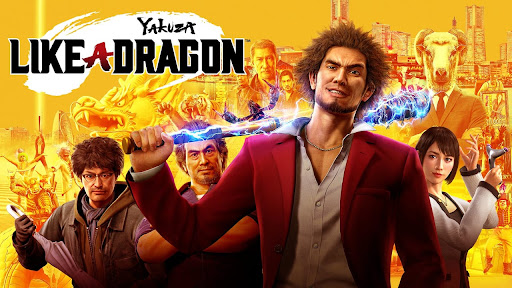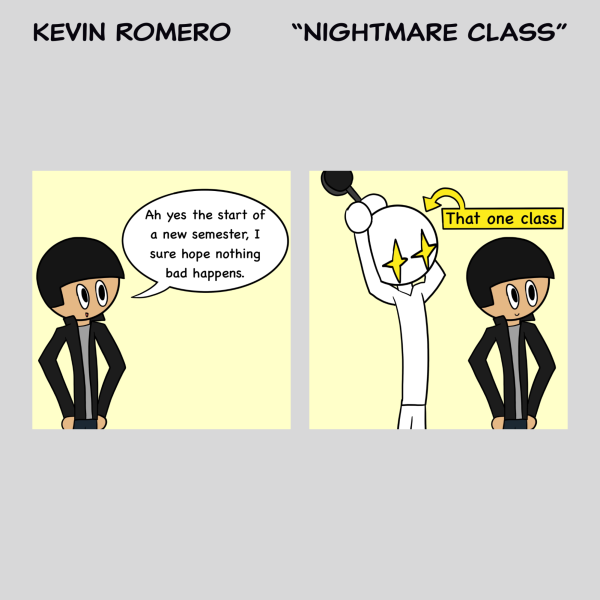‘Yakuza: Like a Dragon’ Deals with Murder, Betrayal, and…Chickens?

What do gangsters, karaoke, running a business, and infiltrating a cult have in common? If you answered the “Yakuza” series, you’d be right. The “Yakuza” games have some of the best stories to tell in gaming, alongside some of the weirdest moments in gaming. Half the time, I can’t tell if the games are trying to be comedies or dramas. Until 2020, the genre of the “Yakuza” games was action-style where you beat your opponents in real-time hand-to-hand combat using various techniques. However, the release of “Yakuza: Like a Dragon” changed all that by switching the formula to a turn-based role-playing game.
The genre switch was controversial. Some despised the new gameplay, while others accepted it with open arms. I, for one, didn’t have a strong opinion on the change. To me, the most important part of the series was the goofy antics paired with a serious and engaging narrative. Luckily for me, “Yakuza: Like a Dragon” delivered exactly that.
Being the seventh installment in the mainline series, this game acts as a sequel to the first six games. That being said, it can also act as a stand-alone title. Knowledge of the previous games is not required to enjoy the story of this one. That being said, some cameos and events may not hold the same weight if you jump into the series with this game.
“Yakuza: Like a Dragon” observes the character of Ichiban Kasuga as he gets to the bottom of a mystery following his release from prison. He was once a proud member of the Yakuza, otherwise known as gangsters who control Japan from the underground. After tracking down his old boss, he’s thrown into a conspiracy that might just impact the future of Japan.
What’s a good turn-based RPG without some party members to help out in battle? Along with Ichiban is a cast of characters that assist him during encounters with enemies. These characters join Ichiban throughout the story and provide their own unique skills when fighting enemies. There’s even a job system, which allows characters to learn special skills that pertain to the job they have equipped. Watching specific characters perform attacks from their equipped job is both hilarious and epic.
In previous entries, you would run into enemies in the overworld, then shift into battles where you would use button combos to take them down. The way you encounter enemies is still the same, although battles play out much differently. Now, you have a menu to choose certain attacks and skills for each of your party members. This being turn-based, you’re only controlling one character at a time. Most attacks still utilize real-time button combos, but you no longer have to consider your next action right after finishing your attack. This is nice, as there’s still an element of action in battles without getting overwhelmed or spamming the same attack over and over again. It provides a decent change for those who are used to turn-based RPGs while not forgetting about the people who prefer more action.
You also have the ability to summon characters to help you in battle. You gain summons by completing certain missions and doing specific tasks. These summons are probably my favorite in any video game ever. Some of them make me laugh long after I’ve finished summoning them. You can even summon a chicken for some reason.
The “Yakuza” series is known for having excellent narratives. That being said, the story of this game is pretty dark. The criminal underworld is not a place where things go swimmingly. Everything you’d expect from gangsters is pretty much present in the story. If you’re someone who is sensitive to such content, perhaps this game is not meant for you. Otherwise, I would recommend anyone play this game specifically for the story. There are some really great moments that incorporate some of the best features of storytelling.
Ichiban’s journey takes him to the Yokohama district, where corruption runs deep. You’re given free rein to explore the area, where there are many side quests (referred to as “substories”) for you to take on. This is where the game gets a bit goofy.
These substories range from serious to outright absurd. For example, there’s a substory where your goal is to defeat grown men wearing nothing but diapers and acting like babies. Another substory involves you having to fight off sheep as you try to stay awake during a boring movie. See what I mean? Sometimes, you can get distracted doing substories that you forget you’re in the middle of a war between Japanese factions. Most of the substories don’t seem thrown in, rather they feel like a natural part of the world. However, there are a select few that just seem like a chore.
You also have access to minigames throughout the district. You can participate in a go-kart league, or manipulate investors into giving you money for a business you became the CEO of ten minutes ago. These minigames are usually a hit or miss. There are some that are just not fun to play. One of my favorites is karaoke, which has been present in every “Yakuza” game. It’s so fun watching characters have a blast singing right after watching a horrific scene, or as the world falls apart around them.
I’m not going to lie, there is one portion of the game I despise. At a certain point, you have to collect three million yen in order to advance the story. This part was so boring and frustrating that I almost quit playing. It really tests your patience, and not in a good way. The rest of the game is fun and engaging, just not this dumpster fire of a quest.
Overall, the game is a treat to play. Fun battles coupled with a brilliant story and side quests make for an enjoyable experience. While some minigames aren’t exactly riveting to play, they are optional and don’t slow you down. Unfortunately, an extremely disappointing required quest hurts the game’s pacing and leaves a really bad taste in the mouth. Otherwise, though, the game is phenomenal.
Score: 8.5/10








